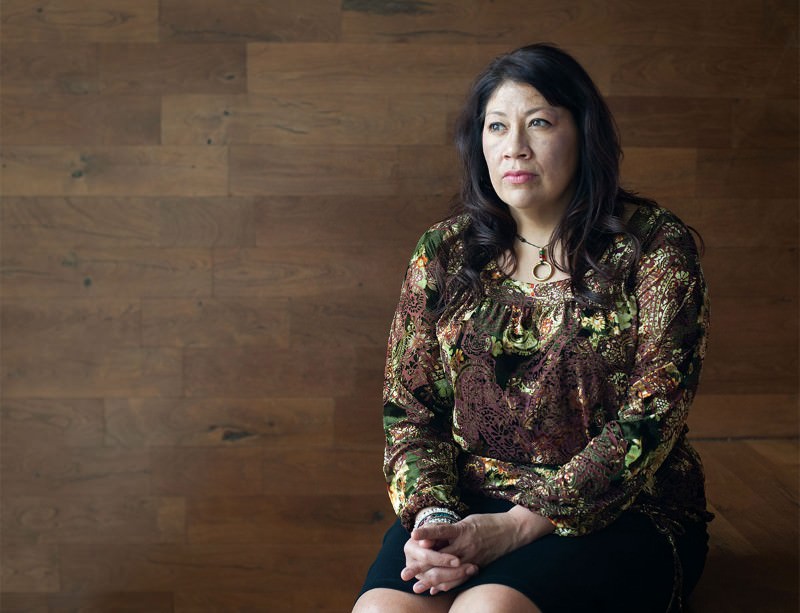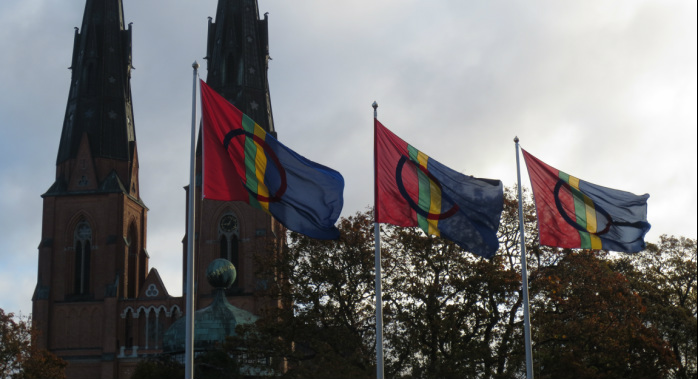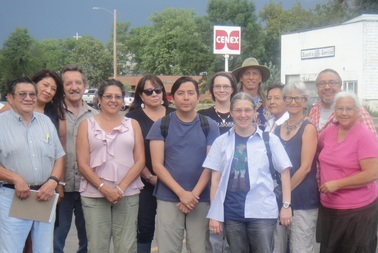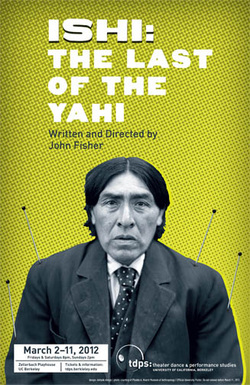‘There is no DNA test to prove you’re Native American’
Click to read In the 13 February 2014 issue of The New Scientist Linda Geddes published an interview with me: DNA testing is changing how Native Americans think about [...]
Uppsala 3rd Supradisciplinary Feminist Technoscience Symposium: Feminist and indigenous intersections and approaches to technoscience
Sámi flags flying over Uppsala University! I am thrilled to be blogging from the 3rd Supradisciplinary Feminist Technoscience Symposium organized by my colleague May-Britt Öhman at Uppsala University, Sweden. The five-day symposium (Oct 14-18) [...]
Democratizing technoscience: from theory to practice — an inspiring tribal/university greenbuilding collaboration (Update)
BERKELEY: Sustainability in Products & Practice from Watson Institute on Vimeo. UPDATE: I originally posted this video in January 2012 that features the Pinoleville Pomo Nation (PPN) - UC Berkeley collaboration to co-design an [...]
An Indigenous Ontological Reading of Cryopreservation Practices and Ethics (and Why I’d Rather Think about Pipestone)
As presented at the American Anthropological Association 111th annual meeting, San Francisco, CA, on the panel: “Defrost: The Social After-lives of Biological Substance.” Cryopreservation—or deep freeze of tissues—enables storage and maintenance [...]
“Survival Horror and Other Colonial Fantasies: American Indians, Video Games, and Popular Genres”: A Conversation with Jodi Byrd
Cross-posted from www.oaklakewriters.org, an organization of Oceti Sakowin writers in which I am a member, and on whose behalf I also blog. On the third day of the Oak Lake Writers Society [...]
No human subjects ethics protocols for playwrights and actors
10/30/12 Update: A new Indian Country Today article highlights recent results of UC Berkeley Native graduate students' work to call the UC Berkeley Theater, Dance, and Performance Studies Department (TDPS) to respond to and engage in dialogue [...]





